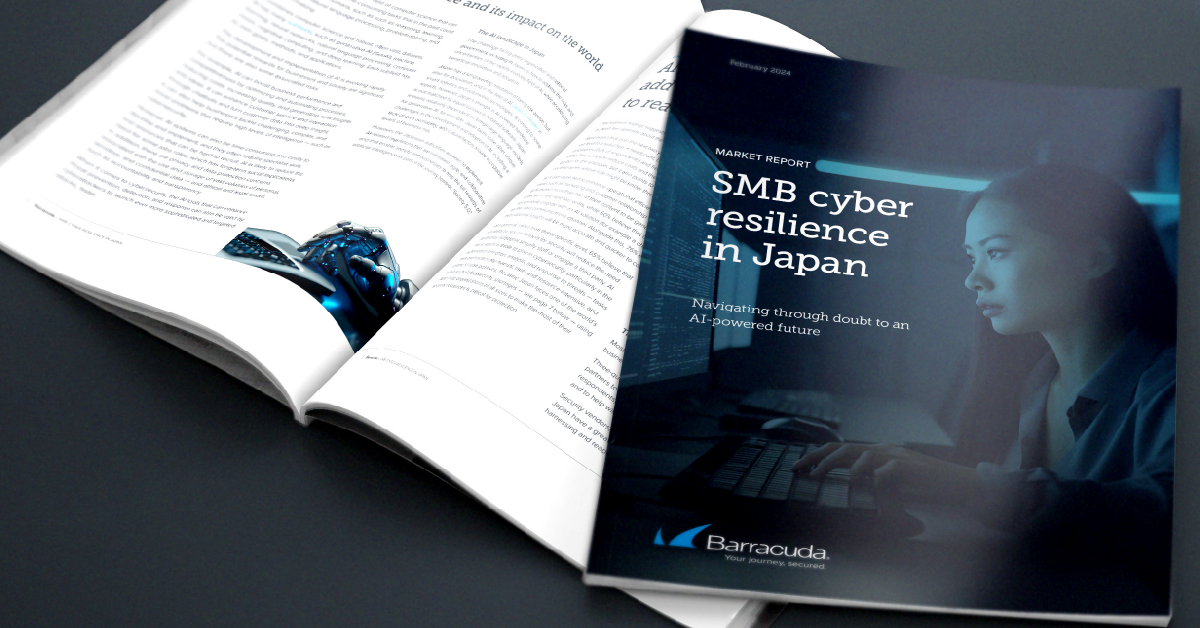
Business boost, security risks, skills gaps — how Japan’s SMBs feel about AI
It’s almost impossible to have a conversation about technology today without mentioning artificial intelligence (AI). The most widely-known AI tool, generative AI is currently dominating discussions, and systems such as ChatGPT are being used around the world to boost productivity and performance. Unfortunately, these tools can also be used for malicious purposes.
The challenge facing every organization today regardless of its size, industry, or location is how to understand and address the risks and uncertainties that are being introduced or accelerated by AI, while at the same time harnessing its potential for good. This is particularly the case among smaller businesses, which may not always have the resources in place to securely and effectively implement the latest technological innovation.
New research among SMBs in Japan shines a light on these areas. The findings reveal a strong sense of optimism and opportunity tempered by concerns about how AI might impact employees and the cyberthreat landscape and whether the organization has the skills to cope.
The findings are summarized in a new report, ‘SMB cyber resilience in Japan — Navigating through doubt to an AI-powered future.’
Key takeaways
Taking in responses from 500 IT professionals in organizations of between 50 and 200 employees in Japan in late 2023, the research found that respondents expect AI to enhance operational efficiency, making it easier and quicker to gather customer insight (76%), which is crucial for business development and market research.
At the same time, the majority (69%) think there are risks associated with the use of
generative AI in in the workplace, and only around one in 10 (12%) permit a limited approved use of generative AI tools. Having said that, nearly two-thirds (62%) suspect the tools could be used ‘unofficially’ by employees, highlighting a lack of regulation, visibility, and oversight in this area.
Similarly, while 55% of respondents admit they are unsure how attackers might leverage AI in email-based attacks — 36% believe AI will strengthen protection against such threats.
When it came to coping with AI-based cyberattacks, 63% of respondents feel they lack some or all of the necessary skills to mitigate such threats, highlighting a need for upskilling and education in this area. Three-quarters (77%) said they would welcome some external help in finding, implementing, and managing the right AI solutions.
Overall, the report underscores that most organizations understand that while attackers can use AI to launch attacks that are faster, more sophisticated, and more targeted, AI tools can also be used to enhance threat prevention, detection, and response. However, gaps remain when it comes to understanding and addressing the threats that AI can pose to an organization’s cybersecurity posture. This could hold smaller businesses back from harnessing the full potential of AI.
In order to boost cyber resilience, Barracuda recommends that businesses deploy AI-enabled security tools to counter attackers deploying generative AI and machine learning to build their cyber weapons. By doing so, businesses will be able to enhance their resilience and be better prepared to identify, block, respond to, and recover from attacks. This approach should be supported by regular security awareness training and a sound approach to security basics, such as patching and backups.
Read the full report now.

Informe de Barracuda sobre Ransomware 2025
Principales conclusiones sobre la experiencia y el impacto del ransomware en las organizaciones de todo el mundo
Suscríbase al blog de Barracuda.
Regístrese para recibir Threat Spotlight, comentarios de la industria y más.

Seguridad de vulnerabilidades gestionada: corrección más rápida, menos riesgos, cumplimiento normativo más fácil
Descubra lo fácil que es encontrar las vulnerabilidades que los ciberdelincuentes quieren explotar.





